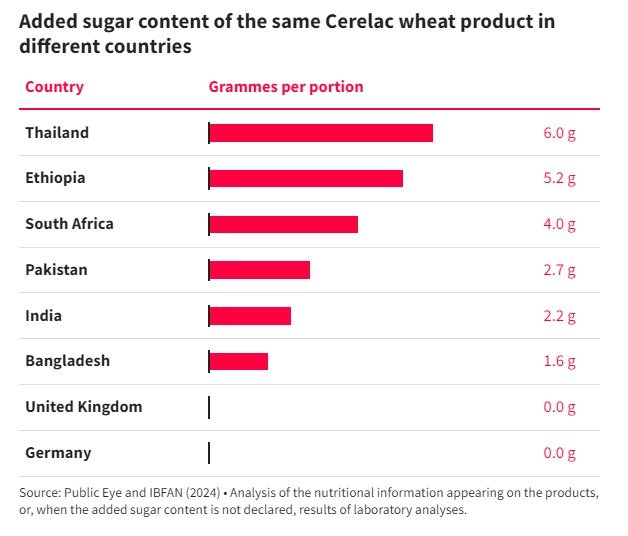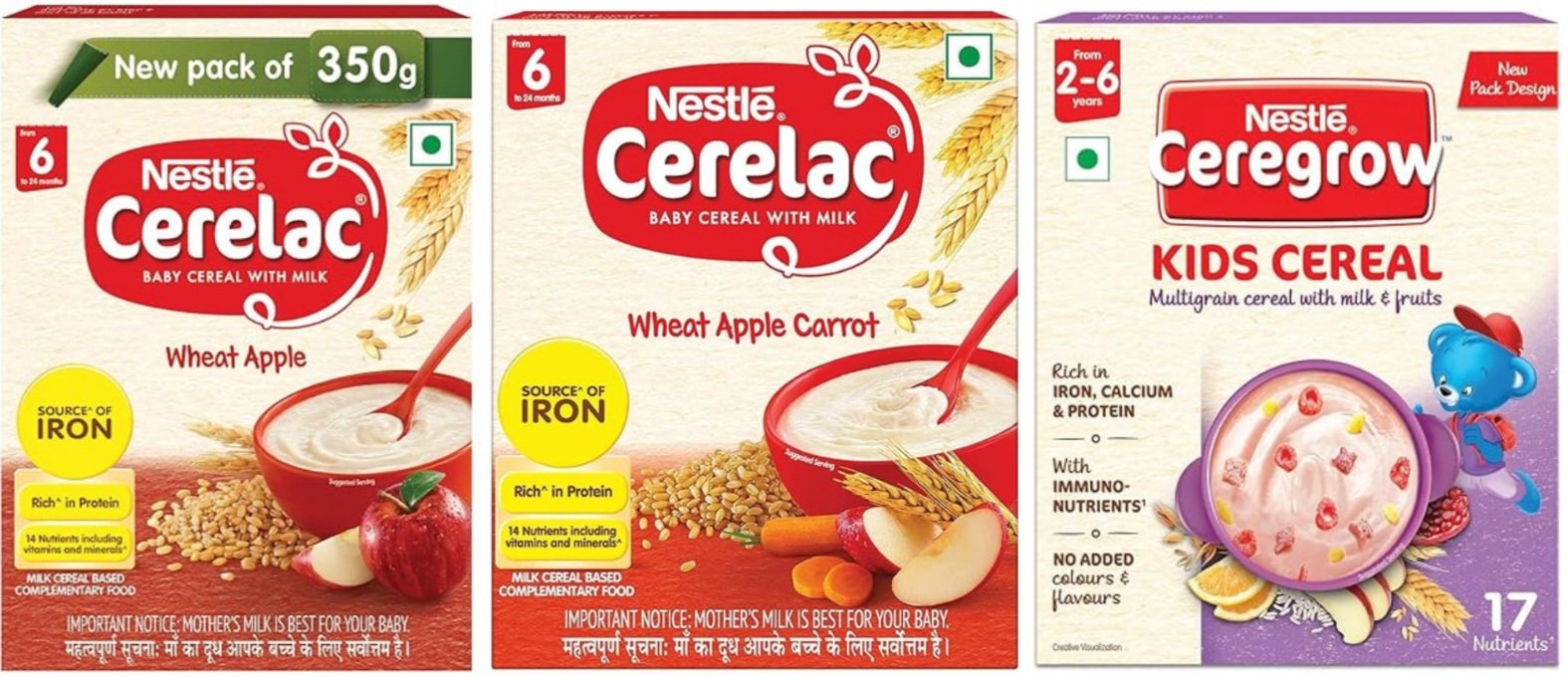Nestle, the renowned global consumer goods company, has once again found itself embroiled in a controversy concerning the sugar content in its baby food products sold in India. A study conducted by the Swiss investigative organization Public Eye revealed that Nestlé’s Cerelac and Nido baby products in India contain nearly 3 grams of sugar per serving
Nestle, the global consumer goods giant, has faced repeated controversies in India, with the latest involving the sugar content in its baby food products. A study by Public Eye revealed that Nestlé’s Cerelac and Nido baby products in India contain nearly 3 grams of sugar per serving. Despite Nestle India’s efforts to reduce sugar content by up to 30% over the past five years, concerns persist over the sugar levels in its infant cereals.
Sugar Discrepancies in Nestlé’s Baby Food Products Reports from Public Eye and the International Baby Food Action Network (IBFAN) shed light on the disparities in sugar content among Nestlé’s baby food products sold in different regions. While sugar was present in Cerelac products in developing countries like India & other South Asian countries, sugar-free options were available in European markets. This discrepancy raised concerns about Nestlé’s approach to sugar levels in products marketed in low-income versus high-income countries.

Previous Controversies and Responses Nestle has a history of controversies in India, including the 2015 Maggi noodles ban due to excess lead and MSG. The ban, triggered by labelling discrepancies and confirmed test results, led to a nationwide recall and regulatory actions by FSSAI. Nestle faced criticism for not meeting health standards in a significant portion of its food and beverage range, prompting pledges to improve nutrition profiles by reducing sodium and sugar content by 14-15% over seven years.
Nestlé’s Commitment to Quality and Nutrition Despite facing challenges, Nestle India maintains its commitment to product quality and nutritional standards. The company emphasizes using high-quality ingredients and regularly reviews its portfolio to innovate and reduce added sugars without compromising safety or taste. Nestlé’s ongoing efforts to align with health criteria and update its product lineup reflect a dedication to meeting consumer expectations and regulatory standards.


What you’re creating here is a true oasis of knowledge and inspiration! Every sentence is like a precious pearl, and together they form a fascinating necklace of wisdom. The only thing I found missing was slightly more detailed examples – that would have made it absolutely perfect!